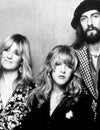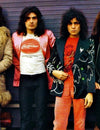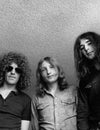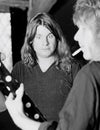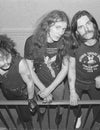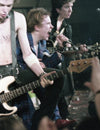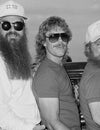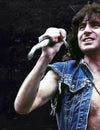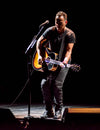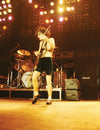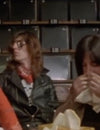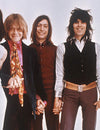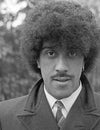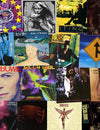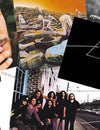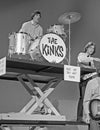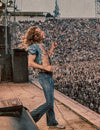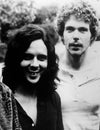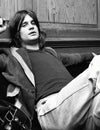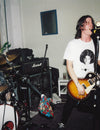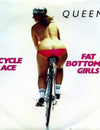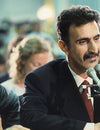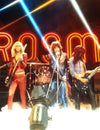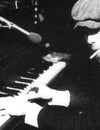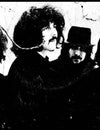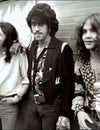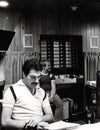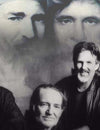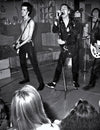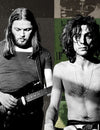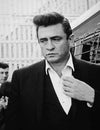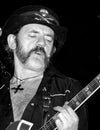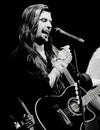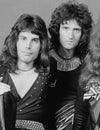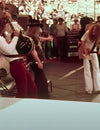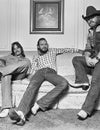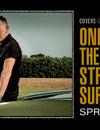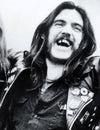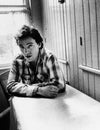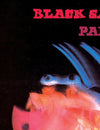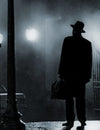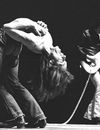
Johnny Cash: Prison Album Recordings
Country music outlaw Johnny Cash told many stories on his way to becoming a beloved figure in the music industry. After conquering his demons and moving on from his drug abuse in the late 1960s, he sought to make his mark. He was ready to cement his place as a singer-songwriter and in 1967 Columbia Records greenlit an idea that would forever change his career trajectory.
‘Johnny Cash at Folsom Prison’ was the first of a series of live albums recorded at prisons that would renew his career. Recorded live on January 13th, 1968, and released on Columbia Records on May 6th. The 17-track album consisted of songs recorded from the two shows he played; 15 tracks from the first, and 2 from the second. The album reached number one on the country music charts and landed in the top fifteen on the national album chart. It’s gone triple platinum in the US; platinum in Canada, and gold in the UK.
Cash, known as the “Man in Black,” drew inspiration for the show from the 1951 film ‘Inside the Walls of Folsom Prison’; a film he watched while serving in the US Air Force Security Service in 1953. In 1955, he wrote the song ‘Folsom Prison Blues.’ It was released as a single on Sun Records and inmates started writing to Johnny, asking him to perform at their prison. In 1957, he played at Huntsville State Prison in Alabama. It was a fulfilling experience, and very well received, so he continued the prison performances before recording and releasing his Folsom Prison show in 1968.
Carl Perkins opened both Folsom shows, playing ‘Blue Suede Shoes.’ The Statler Brothers followed, playing ‘Flowers on the Wall,’ Cash opened his set with ‘Folsom Prison Blues’ and closed both shows with ‘Greystone Chapel,’ a song written by prison inmate Glen Sherley. Gene Beley, a reporter for the Ventura Star Free Press recorded an interview before the shows, and it was there that Cash was introduced to the song. Excerpts from the interview were published in the Virginia Quarterly Review:
Beley: “Johnny, I want you to hear a song written by Glen Sherley, an inmate in Folsom, serving five to life for armed robbery. You've been so busy that I haven't had a chance to tell you about it but I thought if you could mention tomorrow that you've heard the tape, it would please that ol' boy who wrote it."
Beley: "I do.”
From the recording: "All right, this is a take on 'Greystone Chapel…”
Inside the walls of prison, my body may be,
But the Lord has set my soul free…
After the song played, Cash replied: "This has got to be recorded as a single, and I want to record it tomorrow on the album during the show.” 
AT SAN QUENTIN
After the Folsom Prison recordings' success, Johnny returned to the confines of prison walls to record another album in front of about 1000 inmates at San Quentin. Johnny Cash: At San Quentin was recorded on February 24th, 1969, and released in June of that year, the album went triple platinum in the US; platinum in Canada and Australia, and gold in the UK. It reached number one on the US country charts and the national music chart. Johnny Cash had found his niche and was heading to super-stardom.
Two songs included in the set - ‘San Quentin’ and ‘A Boy Named Sue’ - were performed live for the first time. The album was nominated for a number of Grammy Awards, including Album of the Year, and won Best Male Country Vocal Performance for ‘A Boy Named Sue.’
There were some detractors, saying that the album was too short - it only contained nine tracks, and ‘San Quentin’ was on the album twice - and that Cash’s voice wasn’t as robust as what was heard on the Folsom Album. Nonetheless, it was a smashing success and led to further prison shows.
THE FAMOUS BIRD
The now famous “middle finger photo” came from the recording of the San Quentin concert. The UK’s Granada Television filmed the show for television. In the extended version of the concert released by Columbia/Legacy in 2000, Cash gets upset after being told what to sing and where to stand prior to his performance of "I Walk the Line". What followed was the pissed-off Cash giving the finger to the film crew after they refused to move out of his view of the audience. The explanation is included in the liner notes of the album’s 2000 re-release.
PA OSTERAKER
The third live prison album was recorded in Sweden at Pa Osteraker Prison on October 3rd, 1972, and released on Columbia Records in January 1973. It was less popular than the previous two prison albums since it didn’t include any of Cash’s most well-known songs.
It did include a version of Kris Kristofferson’s ‘Me and Bobby McGee.’ The album was re-released in 2007 with significant changes from the original. ‘Orleans Parish Prison’ is a different performance - the original release version was, in fact, a studio recording overdubbed with applause for the original album and single release - the 2007 Legacy reissue replaces it with the original live rendition. ‘San Quentin’ was recorded with Cash replacing San Quentin with Osteraker which was greatly appreciated by the inmates and this version, which was performed twice, is included in the reissue along with two unreleased performances by Carl Perkins. Also, the extended version includes versions of several of Cash's well-known hits that had been omitted from the original release, including ‘I Walk The Line,’ and ‘Folsom Prison Blues.’
The album failed to chart, let alone go platinum, as his previous concerts had, though the single ‘Orleans Parish Prison’ reached number 52 on the country Billboard chart.
A CONCERT BEHIND PRISON WALLS
The final live prison album recorded by Johnny Cash was released posthumously in September 2003. Recorded at the Tennessee State Prison in 1974, it features seven songs by Cash with his backing band the Tennessee Three, and nine performances by Linda Ronstadt, Roy Clark, and Foster Brooks. It was released 11 days after Cash's death on September 12th, 2003, and stands as his first posthumous release of previously unreleased performances, though it was not planned as such. A DVD of the broadcast was also released, as it was the soundtrack to a television special featuring the concert. The special was originally called ‘A Flower out of Place,’ and included Glen Sherley - the Folsom Prison inmate who wrote several songs that Cash had performed at previous prison concerts. All footage of Sherley has been cut from new releases of the show.





